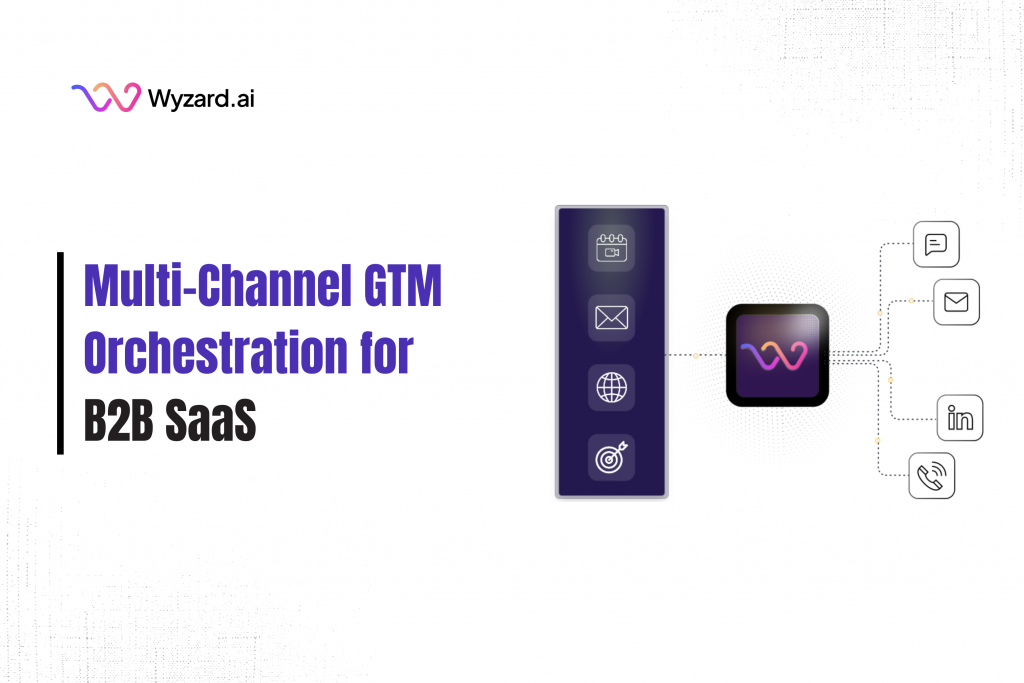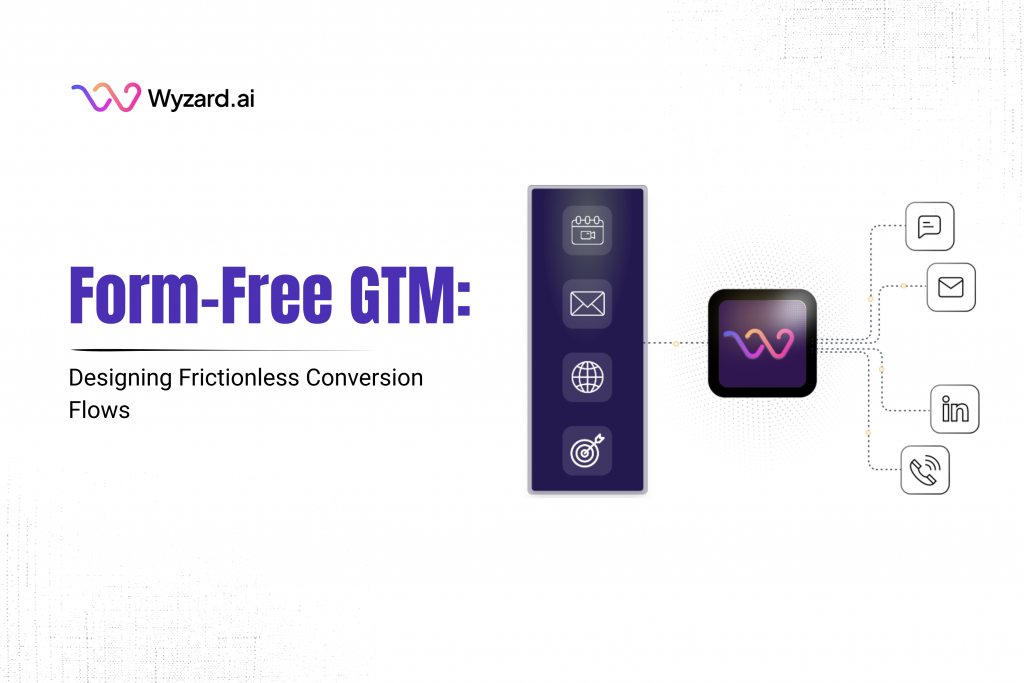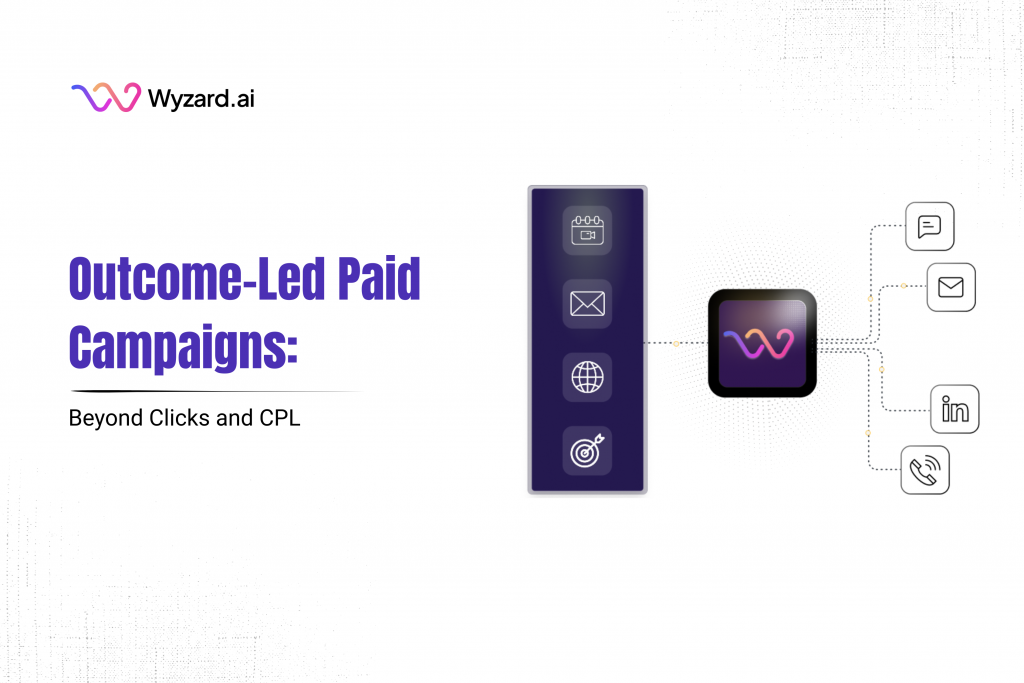If you run marketing or revenue for a B2B SaaS company, the goal is clear: turn GTM spend into ...

Subscribe Now
These days, it feels like everywhere you turn, there’s chatter about AI. It’s in our chatbots, recommendation systems, and even voice assistants. But what about marketing? Companies are increasingly challenged to manage and convert leads effectively in a competitive landscape. Customers now expect quick responses and personalized solutions, yet many businesses are still relying on outdated marketing approaches.
This is where AI agents come into play. They have the potential to revolutionize marketing by predicting customer behaviour, optimizing lead qualification, and scaling efforts in ways that traditional methods cannot. Imagine having a seamless, tailored marketing experience that not only engages potential customers but also nurtures long-term loyalty. This is what we call “AI Intelligent Agents.”
In this blog, we will explore what AI agents are, how they work, and why they are becoming essential in the marketing landscape. Let’s get started!
What Are AI Agents?
AI agents are intelligent software programs built to perform specific tasks autonomously or semi-autonomously. They analyze data, make decisions, and interact with users through the use of advanced algorithms, machine learning, and natural language processing. In marketing, AI agents can automate lead qualification, predict customer behavior, and personalize interactions so that overall efficiency can be enhanced.

Equally important, these agents will continuously learn from their very own interactions, enhancing their performance with the passing of time. With AI agents handling repetitive tasks and providing insights, human resources can be freed up for more strategic initiatives, thus driving better outcomes and better relations with customers. Their flexibility comes to the rescue within the fast-moving digital landscape that is currently our world.
How Do AI Agents Work?
Let’s break down how AI agents operate:
1. Perception and Data Collection
AI agents operate by collecting data from several sources, which may range from customer interactions through lists of transactions up to social networks. It’s this data that will provide a good rationale behind the customer’s query. The higher-end AI intelligent agents can actually match, tweak and merge this data in real time; this also equates to being up-to-date in addressing customer queries.
2. Decision-Making
Using sophisticated deep learning models, AI agents analyze the collected data to identify patterns and make informed decisions. For instance, they can determine the best response to a customer query by considering past interactions and the current context. Their ability to learn from previous experiences helps refine their responses over time, improving the decision-making process.
3. Executing Actions
Once a decision has been concluded, AI agents can carry out the action that needs to be done, whether it is a response to a query, handling a request, or taking a complicated issue to a human assistant. The execution would be seamless and efficient and that would enable customers to get the appropriate answers, in a timely fashion.
4. Learning and Adaptation
AI intelligent agents don’t just stop learning after a single interaction. They continuously refine their algorithms based on feedback and new information. This ongoing learning means they remain effective and relevant, adapting to changing customer expectations and business landscapes.
What Are the Benefits of Using AI Agents?
Integrating AI Agents can increase the productivity level of business processes and customer experiences:
Increased Productivity
AI agents are usually autonomous systems, which are meant to do certain tasks without any human intervention. With these agents performing the repetitive work, your team can give more time to more important or creative activities, thus ultimately adding more value to your organization.
Cost Reduction
Intelligent agents allow you to save unnecessary costs that would be incurred because of inefficiencies, human errors, and manual processes. Besides, they follow an operational model that remains the same in scenarios demanding, thus reliably managing even complex tasks.
Informed Decision-Making
Sophisticated AI agents use machine learning to analyze vast amounts of real-time data. The ability to do this makes business managers make faster and well-informed decisions. For example, you could use AI agents to analyze the levels of demand in product segments during advertising campaigns, ensuring enhanced stratagems.
Improved Customer Experience
Today’s customers crave engaging and personalized interactions. By integrating AI agents, businesses can tailor product recommendations, provide swift responses, and create innovative solutions that boost customer engagement, conversion rates, and loyalty.
Real-World Applications of AI Agents
To truly appreciate the impact of AI agents, let’s look at some real-world applications:

Customer Support
AI agents can manage customer inquiries through chatbots, providing instant responses to common questions and escalating complex issues to human representatives when necessary. This not only speeds up response times but also enhances customer satisfaction.
Sales Assistance
In sales, AI agents can analyze customer data to identify potential leads and suggest the best approaches for engagement. They can also assist sales teams by providing real-time data about customer preferences, which helps in crafting personalized pitches.
Marketing Automation
AI agents can optimize marketing campaigns by analyzing customer behaviour and preferences. They can segment audiences more effectively and automate email marketing campaigns, ensuring that the right messages reach the right people at the right time.
Product Recommendations
E-commerce platforms often use AI agents to analyze customer browsing and purchasing behaviour. These agents can suggest products tailored to individual preferences, increasing the chances of conversion and enhancing the shopping experience.
What are the types of AI agents?
Organizations create and deploy different types of agents in AI. Some of them are explained below:

Simple Reflex Agents:
These agents react to particular situations using some pre-established rules. These are great for simple tasks that don’t take too much training. For instance, resetting passwords can be made easier with a simple reflex agent that searches a user’s conversation for certain keywords.
Model-Based Reflex Agents:
Model-based reflex agents are one step ahead of the simple reflex agents. This agent doesn’t only follow rules but thinks a little! It builds an internal model of the environment to anticipate possible situations before it acts.
Goal-Based Agents:
Goal-based agents are like advanced problem solvers. They assess the environment and consider different options for achieving the specific objection efficiently. These agents are highly challenging tasks like language processing and robotics.
Utility-Based Agents:
Utility-based agents essentially maximize the benefit for users. They compare several variable outcomes and select the one with the maximum utility. An example of the utility-based agent might be a particular agent finding the fastest flights from one destination to another among several routes.
Learning Agents:
Learning agents keep evolving. They learn from the experience of their past performances and feedback, hence constantly becoming better at their jobs. They even design new tasks to drive their own growth and continuous development.
Hierarchical Agents:
These agents have a layered architecture. Agents at higher levels decompose a complicated task into smaller instances, allocating them to agents at a lower level. Every agent works separately, reporting back from time to time, and thus acting cohesively to accomplish their objectives.
Conclusion
In a world where customer expectations are higher than ever, AI agents represent a powerful tool for businesses looking to enhance their customer service. By seeing this demand in the market, Wyzard has launched powerful AI agents designed to transform marketing strategies for businesses. These agents address the pressing need for efficient lead qualification, personalized customer interactions, and data-driven insights. By automating repetitive tasks and predicting customer behaviour, Wyzard’s agents enable companies to engage more effectively, convert leads faster, and scale their operations seamlessly. This innovation not only enhances productivity but also fosters stronger customer relationships. With a focus on empowering businesses to navigate the evolving software landscape, Wyzard is committed to delivering solutions that drive success in a competitive market.
Other blogs
The latest industry news, interviews, technologies, and resources.
Form-Free GTM: Designing Frictionless Conversion Flows
A visitor lands on your pricing page. They are ready to talk, not to wrestle with a 12-field form. ...

December 8, 2025
Outcome-Led Paid Campaigns: Beyond Clicks and CPL
You put serious money into paid media. Dashboards show strong CTR and healthy CPL. The next slide hits and ...

 We’ve secured funding to power Signal-to-Revenue AI to GTM teams globally. →
We’ve secured funding to power Signal-to-Revenue AI to GTM teams globally. →


